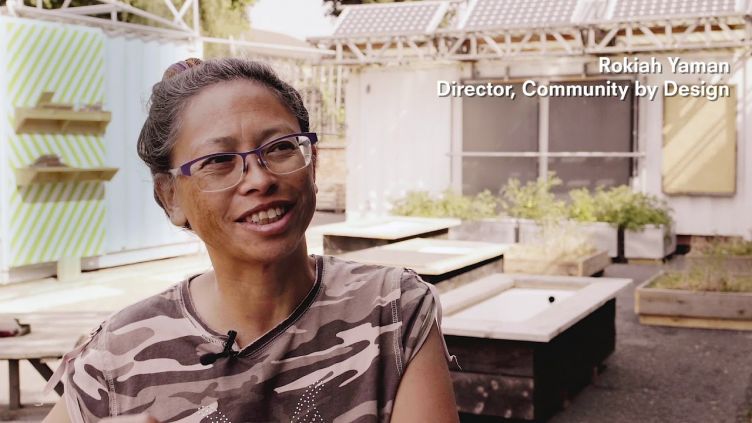Resilience Platform
Building Local Resilience is an initiative which acts as a platform to bring together all research across the school and wider University in climate, demographics, governance and economic stability. It builds on our long standing expertise and history for pioneering socially engaged research.
This platform is intended to help make a coordinated change. In stepping up to the multiple, connected crises we face, we require new products and processes for making, inhabiting, organising, retrofitting and adapting our cities and neighbourhoods.
Architecture intersects many disciplines particularly the social and the technical. We are uniquely positioned to both understand the conditions and develop collaborative responses to the complexity of the challenges ahead. Our research focuses on how design and architecture, along with associated social, cultural and economic processes and structures, might be transformed to build neighbourhood capacities to adapt to these changes.
We aim to develop this platform and to support connections between research, teaching, practice and outreach. Through the process we will build up our own resilience through prioritising collaborative research within the school, strengthening collaborations with our own faculty, university and international partners, industry, and building long term collaboration with Sheffield City and its communities.
Professor Petrescu’s research has brought significant ecological, economic and social benefits to deprived neighbourhoods across Paris and London. Her research and its application in seven 'R-Urban' resilience hubs has led to her work being internationally considered an example of best practice of community-led resilient regeneration implementing Sustainable Development Goal (SDG) principles.
In turn, this led to widescale adoption of her research findings by policymakers, politicians, architects and communities seeking to provide solutions for local resilience in the context of a climate emergency and with restricted resources. The research and R-Urban hubs significance is evidenced by multiple prestigious awards including from the Innovation in Politics Institute (2017).
Housing Fit For Purpose
Performance, Feedback and Learning
Fionn Stevenson
Housing Fit for Purpose sets out a research-focused approach to looking at the challenges facing the built environment in approaching the design, construction and management of housing. This book uses original research by the author on housing performance evaluation and distils it for built environment professionals, arguing that learning from feedback should be taking place at every stage of the housing project lifecycle, improving outcomes for end users. Drawing on active research, this book shows why and how the design, construction and management of housing can be linked to feedback and actual evidence of how people choose, and learn, to use their homes. It examines the key concepts which underlie participatory design, occupancy feedback and learning, and includes a practical primer on how to undertake housing occupancy feedback.
Architecture and Resilience
Interdisciplinary Dialogues
Edited by Kim Trogal, Irena Bauman, Ranald Lawrence, Doina Petrescu
Resilience will be a defining quality of the 21st century. As we witness the increasingly turbulent effects of climate change, the multiple challenges of resource depletion and wage stagnation, we know that our current ways of living are not resilient.
This volume takes resilience as a transformative concept to ask where and what architecture might contribute. Bringing together cross-disciplinary perspectives from architecture, urban design, art, geography, building science and psychoanalysis, it aims to open up multiple perspectives of research, spatial strategies and projects that are testing how we can build local resilience in preparation for major societal challenges, defining the position of architecture in urban resilience discourse.

